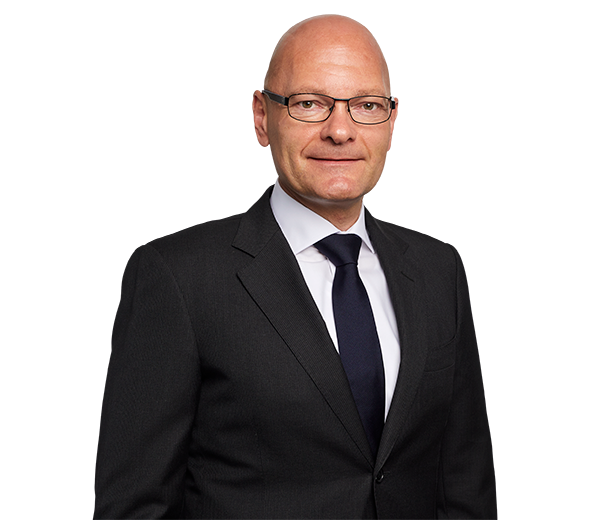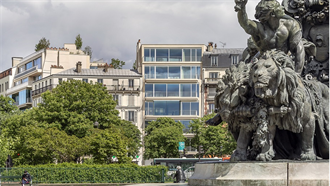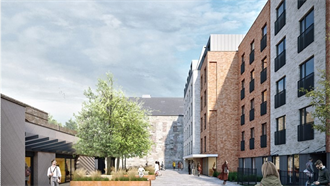More off-market investment opportunities would lead to an increase of Korean capital flowing into both the Dutch and European real estate investment markets, according to Peter Jansema of law firm Greenberg Traurig.
Korean investors can take up to twice as long as other groups to complete real estate investment transactions, PropertyEU's Europe and Netherlands 2018 real estate outlook briefing heard. As a result, Korean buyers can be at a disadvantage in open sales processes that involve multiple bidders and tight timelines.
'Off-market opportunities would certainly lead to further inflows of Korean money because the timing and visits required in on-market transactions typically do not match with Korean investors' expectations,' said Greenberg Traurig's Jansema (pictured).
He was commenting during the Outlook briefing held on 6 December at the Atrium office complex at Amsterdam's Zuidas business district.
The event heard that Icon Real Estate, the Benelux office platform established by private equity firm Victory Advisors, recently sold the Atrium office scheme to Paris-based Amundi Real Estate, acting on behalf of a Korean consortium. The investment volume came to €500-plus mln - the largest single-asset transaction ever in Dutch real estate.
Greenberg Traurig and Cushman & Wakefield advised Amundi in the transaction.
Panellist Mathijs Flierman of Cushman & Wakefield said that there was a lot of money coming into the Netherlands from outside of Europe. Korean capital is an important element of this capital, though generally the trading is filtered through asset and investment managers. This was the case with the Atrium as Amundi acted for the Korean end-investors.
Atrium deal
Flierman said that the Koreans tend to 'work from the bottom up' and therefore their deals can take longer than the 'couple of months' it might take US, UK or German investors.
The Atrium sales process started in October 206 and reached final completion in October 2017, Jansema of Greenburg Traurig confirmed.
'What we achieved in this transaction is that we had periodic milestones where the Koreans had to agree on certain decisions with a break-up penalty or fee to be paid to the other joint venture partner, Jansema said.
'It is workable, but compliance from the Korean perspective is extremely difficult and it doesn’t typically match with on-market transactions with strict timelines. It takes at least double the time compared with other transactions.'
In response to a question from another audience member, Cushman's Flierman said he did not see vendors adjusting sales processes to accommodate investors who don't have the ability to respond quickly. 'In a slow market vendors will adjust the process, but not when the market is hot,' Flierman said.
The Dutch real estate market is racing towards a record investment volume of up to €20 bn for 2017. 'Everyone is looking at the top of the iceberg and pitching to 3-4 investors, which is not to say there aren't others who could pay more,' Flierman said. The key for vendors is to avoid the risk of the highest bidder not being able to close the deal.
Due diligence
Flierman said that brokers such as Cushman & Wakefield try to make sales processes as 'comfortable as possible' by having as much vendor due diligence as possible completed at an early stage.
It doesn't necessarily always work out smoothly. Flierman: 'In every pitch, a vendor will say that they have everything in place and ready to go to the market in a few weeks. I can say that in 99% of cases, the vendors don't have everything in place to the degree we would want it. We have to do a lot of work to get it ready to meet the expectations of investors who want more and more information.'
Maas Tower
Sometimes an asset offer needs adjustment. Flierman cited the example of the Maastoren (Maas Tower) in Rotterdam which Cushman & Wakefield is marketing on behalf of Colony Northstar.
The sales process was first launched 15 months ago when the Dutch market was in a completely different state. The offer of the tower at a 7.15% gross initial yield generated about one or two bidders, but not at terms acceptable to the vendor.
Flierman: 'We took it back from the market, re-geared the leases with the tenants and put it back for sale at 5.5%. That was a very successful decision but because of of the volume - roughly €160 mln, you have to run a totally different process.
Another new development, last seen in the Netherlands pre-crisis in 2006-7, is that two investors are willing to go into due diligence together rather than one on the basis of exclusivity.
'This is an ideal situation from the sales side because they are running in parallel towards the finish, and providing the vendor with unconditional offers they can choose between,' Flierman said. 'Sometimes there is a minimum remuneration for the one who loses. He gets a couple of €100,000 for reimbursements.'


































